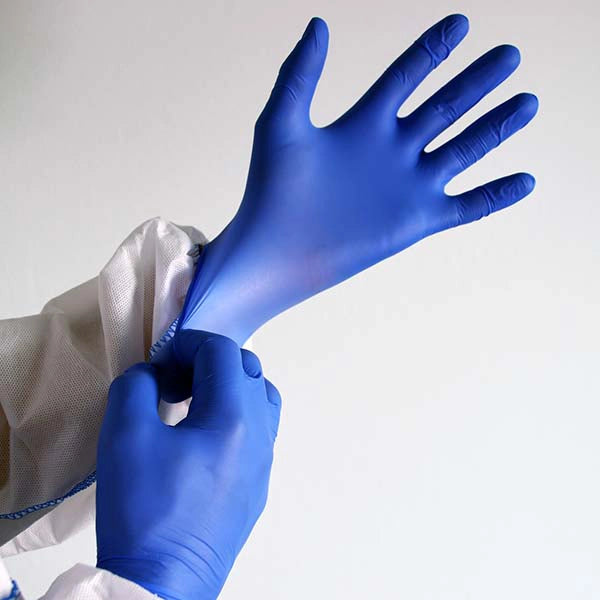As a tattoo artist, you understand the importance of using the right gloves to ensure the safety of your clients and the quality of your work.
Latex gloves have been a popular choice for many years, but with the increasing prevalence of latex allergies, it's essential to consider latex-free alternatives.
In this article, we'll explore the best latex-free gloves for tattooing, their benefits, and how to choose the perfect pair for your needs.
What are Latex-Free Gloves for Tattooing?
Latex-free gloves, such as nitrile gloves, are the preferred choice for tattoo artists due to their durability, puncture resistance, and hypoallergenic properties. These gloves provide a safe and comfortable alternative for both the artist and the client, eliminating the risk of latex allergies while maintaining the necessary barrier protection.
Examples of Latex-Free Gloves for Tattooing
- Nitrile gloves: These gloves are made from synthetic rubber and offer excellent durability, puncture resistance, and tactile sensitivity. They are the most popular choice among tattoo artists.
- Vinyl gloves: Although less durable than nitrile gloves, vinyl gloves are a cost-effective option for short tattoo sessions or tasks with minimal exposure to fluids.
- Neoprene gloves: Known for their chemical resistance and durability, neoprene gloves may be a suitable choice for artists who work with various inks and cleaning agents. However, they may be less comfortable than nitrile gloves.
5 Best Latex Free Gloves for Tattooing
1. HandCare Black Nitrile Gloves - Exam Grade, Powder Free (4 Mil)
These 4 mil nitrile gloves are exam-grade, powder-free, and designed for medical and tattooing use. They offer durability, puncture resistance, and are perfect for handling tattoo needles and inks.
Shop HandCare Black Nitrile Gloves and save up to 50%
- Use Case: Ideal for tattoo artists who need a reliable glove for general tattooing sessions, especially when working with fine details and shading.
- Best For: Tattoo artists looking for an affordable, durable option that offers good dexterity and comfort.
- Features: Latex-free, 4 mil thickness, powder-free, excellent tactile sensitivity, and comfortable for extended use.
2. ASAP Black Nitrile Gloves - Exam Grade, Powder Free (5 Mil)
These black nitrile gloves feature a 5 mil thickness, providing enhanced protection without compromising on dexterity. They are latex-free, making them a safer alternative for those with latex allergies.
Shop ASAP Black Nitrile Gloves and save up to 50%
- Use Case: Best for tattoo artists working with multiple clients or those needing a glove that offers a balance between protection and precision for medium to long tattoo sessions.
- Best For: Artists seeking slightly thicker gloves for better puncture resistance and protection while maintaining high sensitivity for detailed work.
- Features: 5 mil thickness, powder-free, and high durability.
3. HandCare Black Nitrile Gloves - Exam Grade, Powder Free (6 Mil)
With a 6 mil thickness, these nitrile gloves offer maximum protection while still maintaining adequate dexterity. Ideal for tattoo artists working with sharp instruments and for those who need extra durability.
Shop HandCare Black Nitrile Gloves and save up to 50%
- Use Case: Suitable for tattoo artists performing longer sessions, or when handling more intensive tattoo equipment that requires higher protection.
- Best For: Artists looking for high-puncture-resistant gloves for a safer and more secure tattooing experience.
- Features: 6 mil thickness, latex-free, powder-free, and enhanced durability.
4. Dark Light Black Nitrile Gloves - Exam Grade, Powder Free (9 Mil)
These ultra-durable nitrile gloves are 9 mil thick, offering the highest level of protection for tattoo artists. Despite the thickness, they remain comfortable and flexible for long tattoo sessions.
Shop Dark Light Black Nitrile Gloves and save up to 50%
- Use Case: Ideal for tattoo artists who prioritize maximum protection, particularly when dealing with intricate, detailed work or working with clients for extended periods.
- Best For: Artists needing the highest puncture resistance and protection without sacrificing flexibility and comfort.
- Features: 9 mil thickness, latex-free, exam grade, and powder-free.
5. HandCare Blue Nitrile Gloves - Exam Grade, Powder Free (4 Mil)
These 4 mil blue nitrile gloves offer excellent barrier protection while ensuring high tactile sensitivity. Designed to fit snugly, they are perfect for tasks requiring precision and control.
Shop HandCare Blue Nitrile Gloves and save up to 50%
- Use Case: Ideal for tattoo artists working on smaller, more intricate tattoos, ensuring a clean and precise application.
- Best For: Tattoo artists looking for an affordable, high-quality nitrile glove with vibrant color options.
- Features: Latex-free, 4 mil thickness, powder-free, exam grade.
Benefits of Using Latex-Free Gloves for Tattooing
Latex-free gloves, such as nitrile gloves, offer several advantages for tattoo artists and their clients:
- Allergy prevention: Nitrile gloves eliminate the risk of latex allergies, ensuring a safe and comfortable experience for both the artist and the client.
- Durability: These gloves are designed to withstand the rigors of tattooing, resisting punctures and tears during long sessions.
- Tactile sensitivity: Latex-free gloves, particularly nitrile gloves, provide excellent tactile sensitivity, allowing you to maintain a precise grip on your tools and feel the contours of the skin.
- Comfort: Many latex-free gloves are designed with comfort in mind, offering a snug and flexible fit that reduces hand fatigue during extended tattoo sessions.
Choosing the Best Latex-Free Gloves for Tattooing
When selecting the best latex-free gloves for your tattooing needs, consider the following factors:
- Thickness: Glove thickness is measured in mils, with higher numbers indicating a thicker glove. For tattooing, gloves ranging from 4.2 to 5.5 mils offer an optimal balance between protection and dexterity.
- Fit: Choose gloves that fit snugly on your hands without being too tight or loose. A proper fit ensures better control and reduces the risk of the glove slipping or tearing during use.
- Powder-free: Opt for powder-free gloves to minimize the risk of contamination and maintain a clean working environment.
- Brand reputation: Select gloves from reputable brands known for their quality and reliability in the tattooing industry.
Right Size and Thickness
When selecting latex-free gloves for tattooing, consider the size and thickness that best suit your needs. Gloves that are too loose may affect your grip and precision, while gloves that are too tight can cause discomfort and hand fatigue during long tattoo sessions.
Glove thickness, measured in mils, determines the level of protection and durability. For tattooing, gloves ranging from 4.2 to 5.5 mils offer an optimal balance between protection and dexterity. Thicker gloves provide better puncture resistance, while thinner gloves allow for increased tactile sensitivity.
Latex-Free Glove Materials
Several materials are used in the production of latex-free gloves suitable for tattooing:
Nitrile: Nitrile gloves are the most popular choice among tattoo artists due to their durability, puncture resistance, and comfortable fit. They provide excellent tactile sensitivity, allowing you to feel the contours of the skin and maintain precise control over your tools.
Vinyl: Although less durable than nitrile, vinyl gloves are a cost-effective option for short tattoo sessions or tasks that involve minimal exposure to fluids. They are ideal for artists who prioritize affordability without compromising on safety.
Neoprene: Known for their chemical resistance and durability, neoprene gloves are suitable for artists who work with various inks and cleaning agents. However, they may be less comfortable and flexible than nitrile gloves.
Prioritize Puncture Resistance
In the tattooing industry, puncture resistance is a non-negotiable feature when selecting latex-free gloves. Gloves with high puncture resistance minimize the risk of tears and potential contamination during the tattooing process. This is particularly important when working with sharp needles and other tools that can easily puncture subpar gloves.
The best black tattoo gloves are designed to withstand the rigors of tattooing, providing a reliable barrier between your hands and the client's skin. Look for gloves with a thickness between 4.2 and 5.5 mils, as this range offers optimal durability without sacrificing tactile sensitivity. By investing in high-quality, puncture-resistant gloves, you can work with confidence, knowing that you and your clients are protected from potential health risks.
Where to Buy the Best Latex Free Gloves for Tattooing
When selecting the material for your latex-free tattoo gloves, consider your specific needs and preferences. Nitrile gloves offer the best combination of protection, comfort, and dexterity, making them the ideal choice for most tattoo artists.
Finally, responsible disposal of used gloves is a must in the tattooing industry. Always discard used gloves in a designated waste container and avoid touching surfaces with contaminated gloves. This practice minimizes the spread of contaminants and helps maintain a clean and professional working environment.
Choosing the right latex-free gloves is crucial for ensuring the safety and comfort of both tattoo artists and clients. With a wide selection of high-quality, puncture-resistant nitrile gloves, gloves.com provides the ideal solution for your tattooing needs.
Best Latex Free Gloves for Tattooing: Frequently Asked Questions
Are nitrile gloves as sensitive as latex gloves?
Yes, high-quality nitrile gloves offer comparable tactile sensitivity to latex gloves, allowing you to maintain precise control while tattooing.
How often should I change my gloves during a tattoo session?
Change your gloves whenever they become contaminated, punctured, or torn. It's also a good practice to change gloves between clients and during lengthy tattoo sessions to maintain hygiene and comfort.
Can I reuse latex-free gloves?
No, latex-free gloves, like all disposable gloves, should be discarded after each use to prevent cross-contamination and ensure the highest level of hygiene.







